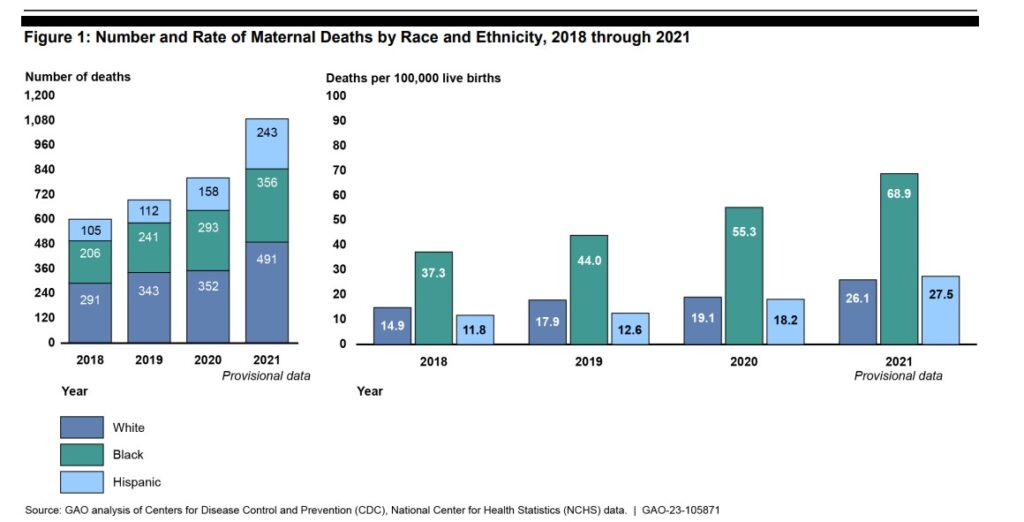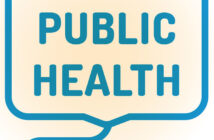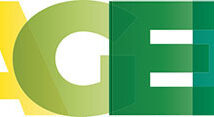BY ALEXA HUGHES AND LAUREN BUCHWALD, BSN, RN, MSC
Maternal Mortality and Morbidity
One does not have to search far to find that the United States is experiencing a maternal health crisis; a crisis that has continued to rise both during and in the aftermath of the global COVID-19 pandemic. Additionally, the maternal health crisis is a crisis of health equity and systemic racism, as Black women are at least three times more likely to die in pregnancy, birth and the year after birth than their white counterparts across all socioeconomic lines (Centers for Disease Control and Prevention, 2023).
Figure One: Graph depicting the growing disparity in maternal mortality rates in the last four years Source: Government Accountability Office (2022). Maternal Health: Outcomes worsened and disparities persisted during the pandemic. Retrieved from: GAO-23-105871, MATERNAL HEALTH: Outcomes Worsened and Disparities Persisted During the Pandemic
Source: Government Accountability Office (2022). Maternal Health: Outcomes worsened and disparities persisted during the pandemic. Retrieved from: GAO-23-105871, MATERNAL HEALTH: Outcomes Worsened and Disparities Persisted During the Pandemic
Strategies to reduce maternal morbidity and mortality need to be comprehensive and use a multipronged approach to tackle the different contributing factors and barriers which have led to these worsening outcomes. Many factors contribute to maternal health disparities, including variation in quality healthcare, underlying chronic conditions, structural racism and implicit bias (CDC, 2023). Two strategies utilized to successfully address these disparities include: increasing access to doula care and promoting perinatal care management among high-risk populations (Knocke, et.al, 2022) (Chou, et.al, 2021).
Often each of these strategies are utilized independent of one another. However, one Medicaid Managed Care Organization in Kentucky has sought to promote collaboration and innovation to improve maternal health outcomes, by partnering its Medicaid perinatal care management program with community-based doulas to increase access to perinatal care and support for their membership.
A Unique Partnership to Improve Access to Maternal Care
Humana Healthy Horizons in Kentucky services over 170,000 Medicaid members across the state. In addition to offering physical and behavioral health care management, Humana Healthy Horizons offers a perinatal care management program called HumanaBeginnings. In 2021, a value added, or extra benefit, was launched for members to have access to doula care through reimbursement to doula providers. By definition, “Doulas are nonclinical trained professionals who can provide emotional, physical, and informational support during pregnancy, delivery, and after childbirth. Access to doula services has been historically limited in the U.S., with greater utilization among higher-income individuals, since doula services are often not reimbursed by health coverage programs including most state Medicaid programs” (Knocke, et.al, 2022). This was the first managed care organization in Kentucky to test the impact of providing reimbursement to doula providers for their Medicaid members.
To best ensure participants had knowledge of and access to this new benefit, the HumanaBeginnings team began directly networking with community doulas, educating members on doula care, and then referring their program members to community doula partners. In 2023, the organization was able to utilize these networked relationships to develop a pilot project aimed at increasing access to prenatal and postpartum visits. This pilot project provides eligible members with free transportation to all maternity care visits needed to support a healthy pregnancy, birth and newborn, through a partnership with community doula organization, Granny’s Birth Initiative (GBI).
Founded in 2018, Granny’s Birth Initiative is an innovative, Black-led doula organization that, according to their mission, “seeks to support disenfranchised birthing families often overlooked due to societal shame or lack of acceptance including birthing people that are BIPOC, incarcerated or homeless girls/women, those in foster care or transitioning out.” Their goal is to “create access to Doula and lactation support, birth education, legal support, and other resources that are the key tools in our fight to decrease maternal and infant mortality in Black and other marginalized communities.” Granny’s Birth Initiative founders recognize the critical need to address social determinant of health factors contributing to the current maternal health crisis. Through their work in the community, they identified transportation and childcare access as significant barriers to perinatal care and decided to form a unique ride share and childcare service called Doula Dash. Doulas and trained perinatal health workers provide these services so that any birthing person in need can attend all necessary medical appointments at low cost.
The pilot project developed with GBI, through a grant from Humana, allows the HumanaBeginnings team to screen eligible members for transportation needs and barriers, provide them a unique code for Doula Dash so that all rides are free, and assist members with scheduling the service online. Granny’s Birth Initiative then confirms the member’s ride and completes the ride and/or childcare service for them. Each member can use the code as many times as needed to ensure they receive care. Members may also attend WIC visits, breastfeeding classes, infant care visits, and more, using Doula Dash, to ensure they can access any maternal supports needed throughout their journey. The unique part of this project is the impact of the provision of childcare services on transportation access and the expansion of rides available to the member specific to maternity services which may not be covered under their state Medicaid transportation benefit. This project is currently ongoing, but the goal at close is to understand the impact of this transportation service on prenatal, postpartum and well child visit access and HEDIS rates for the participating members and the possibilities and need for scaling up or continuing the program in the future.
Actions for Perinatal Care Managers
Care managers and care management programs have an incredible opportunity to address the maternal health crisis. Through the lived experience of this unique pilot project, we recommend that perinatal care managers consider the following as they work to impact maternal health.
First, care managers can ensure they are well informed about maternal health data, including drivers and barriers, of the current maternal health crisis. It is imperative that we understand the health disparities our members and patients are facing and that we are up to date on the best practices and interventions. Doula care has been proven as an important evidence-based intervention to improve maternal outcomes, although it is by no means the sole answer to the crisis. Care managers can educate themselves and their members on the benefits of having a doula and encourage members to access doula care whenever available. When well educated about doula care, care managers can also advocate for the coverage of these services in the areas where they work, either through base benefit coverage or grants and other funding.
Second, care managers can network and develop relationships with community doulas and perinatal health workers in the communities they serve. This is a crucial component to breaking down silos in care. Networking helps to improve referral success and provide collaborative care. Doula providers and care managers can work together on member and patient concerns, including social determinants of health. Developed relationships can ensure the care management programs are most up to date on services available to community so they can quickly and efficiently ensure families can access birth support. Care managers should focus on developing diverse relationships, centering Black-led organizations, and connecting families to culturally congruent doula providers.
Lastly, care managers can look for ways to innovate and close the gaps in care they see in their own community. Increasingly, grassroots, community-based organizations are providing unique social determinants of health services such as is seen with Doula Dash in Louisville, Kentucky. Care managers can promote and advocate for projects within their office, hospital, insurance company or organization which promote collaboration and connection to these needed services to address the unique needs of birthing persons and their families in accessing maternity care.
Conclusion
Both the World Health Organization (WHO,2021) and Healthy People 2030 (Office of Disease Prevention and Health Promotion, 2023) have increasing prenatal care access as sustainable goals to reducing maternal death and illness. Research indicates there is a positive correlation with increased number of prenatal visits on improved maternal health outcomes (WHO, 2021). Both community doulas and perinatal care management programs play a critical role in assisting birthing persons in obtaining full access to perinatal care and in reducing the deleterious impact of maternal morbidity and mortality. Partnerships between care management programs and community doulas can not only build “a village” of support around patients and members but can also provide an opportunity to address social determinants of health needs in unique ways to break down the complex societal and systemic barriers to full access to perinatal care, in hopes of improving maternal health outcomes for all.
References
Centers for Disease Control and Prevention (2023). Working Together to Address Black Maternal Mortality. Retrieved from Working Together to Reduce Black Maternal Mortality | Health Equity Features | CDC
Chou, C. C., Liaw, J. J., Chen, C. C., Liou, Y. M., & Wang, C. J. (2021). Effects of a Case Management Program for Women With Pregnancy-Induced Hypertension. The journal of nursing research : JNR, 29(5), e169. https://doi.org/10.1097/jnr.0000000000000450
Granny’s Birth Initiative (2023). Our Mission. Retrieved from Home | Granny’s Birth Initiative | Birth Kentucky Better (gbiky.org)
Knocke,K.,Chappel,A., Sugar, S., De Lew, N., Sommers, B. (2022). Doula Care and Maternal Health: An Evidence Review. PDF. Retrieved from ASPE-Doula-Issue-Brief-12-13-22.pdf (hhs.gov)
Office of Disease Prevention and Health Promotion (2023). Healthy People 2030: Pregnancy and Childbirth. Retrieved from Pregnancy and Childbirth – Healthy People 2030 | health.gov
World Health Organization (2021). New Global Targets to Prevent Maternal Deaths. Retrieved from New global targets to prevent maternal deaths (who.int)

Alexa Hughes (she/they) is the founder and executive director of Granny’s Birth Initiative. They are a Certified Labor Doula and Certified Midwife Assistant. Alexa is an experienced postpartum doula and also provides lactation education and birth plan consulting in her home community of Louisville, Kentucky. Granny’s Birth Initiative services include: transportation services through Doula Dash, basic needs and maternity supplies through their Maternity Pantry program, and a postpartum meal service to address ongoing food insecurity of birthing families. Alexa is a passionate and skilled birth worker currently pursuing her ASN in hopes of becoming a labor and delivery Nurse in the near future. Read more about Granny’s Birth Initiative here: Home | Granny’s Birth Initiative | Birth Kentucky Better (gbiky.org)
Lauren Buc hwald, BSN, RN, MSc (she/her), is nurse manager for the HumanaBeginnings care management program for Humana Healthy Horizons in Kentucky. Lauren has over 15 years of experience in maternal child health nursing including labor and delivery, neonatal ICU, postpartum, pediatric ICU, public health and perinatal care management. Lauren holds a Master of Science degree in global health and infectious diseases and is currently pursuing a doctorate of nursing practice as a public health nurse leader. Lauren is passionate about reducing maternal and infant health disparities in her community of Louisville, Kentucky. Read more about HumanaBeginnings program here: Kentucky Medicaid: From Pregnancy to Parenthood – Humana
hwald, BSN, RN, MSc (she/her), is nurse manager for the HumanaBeginnings care management program for Humana Healthy Horizons in Kentucky. Lauren has over 15 years of experience in maternal child health nursing including labor and delivery, neonatal ICU, postpartum, pediatric ICU, public health and perinatal care management. Lauren holds a Master of Science degree in global health and infectious diseases and is currently pursuing a doctorate of nursing practice as a public health nurse leader. Lauren is passionate about reducing maternal and infant health disparities in her community of Louisville, Kentucky. Read more about HumanaBeginnings program here: Kentucky Medicaid: From Pregnancy to Parenthood – Humana
Image credit: ISTOCK.COM/VLADIMIR KONONOK




